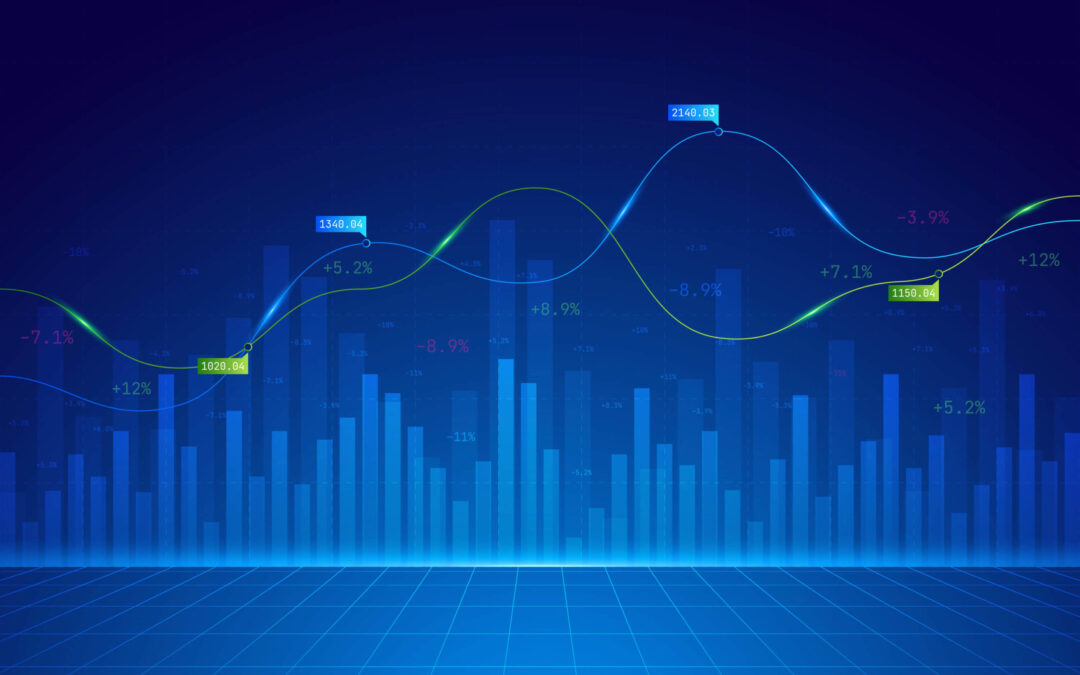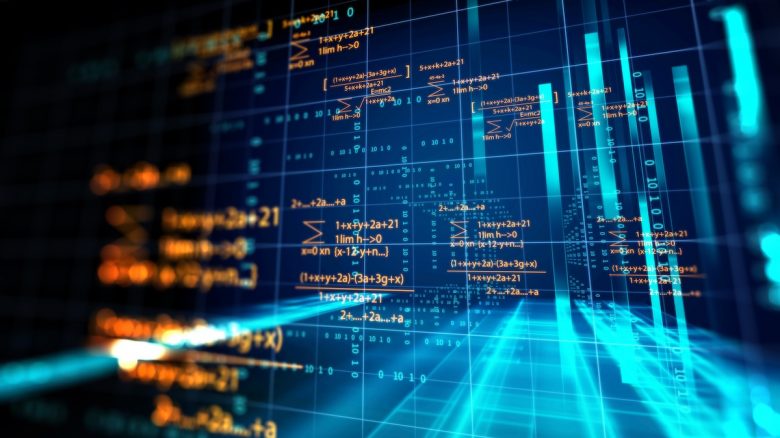
by Nicholas Mitsakos | Book Chapter, China, Economy, Globalization, Investment Principles, Writing and Podcasts
The “Thucydides Trap” occurs when a rising nation-state—for the Greek historian Thucydides, it was Athens—must eventually have a violent confrontation with the existing dominant nation-state—Sparta in his time. It is a zero-sum game where there can be only one dominant nation-state as the eventual winner, and it is usually assumed that the rising nation-state will outdo the dominant nation-state resolved only by military conflict.The United States and China are today’s Sparta and Athens. For several decades, their geopolitical relationship has been fundamentally based on collaboration and healthy competition, raising the bar for both countries. Now, it is turning into discordant competition, trade restrictions, and embargoes. The combined benefits of global collaboration and competitiveness, not trade restraint, will only enhance the benefits for the United States and China. The government creates friction and potential conflict, which is the biggest reason we fall into the Thucydides Trap. If appropriate, oversight, sensible regulation, and enforceable trade agreements do not interfere with fair competition and collaboration. There is no “Trap” to avoid. The sooner China and the US realize this, the better off each country (and the world) will be.

by Nicholas Mitsakos | Innovation, Investment Principles, Investments, irrationality, The Market, Transformative businesses, uncertainty, Writing and Podcasts
Predicting what’s next has been a fool’s game, and it continues to be. The S&P 500 was up 26% in 2023 and 25% in 2024, for the best two-year stretch since 1997-98. That brings us to 2025. What lies ahead? Rationality, Optimism, exuberance, disappointment, correction, and more frequent and intense volatility—with uncertainty about the timing, extent, and outcome. Is enthusiasm for new technology creating a bubble, and will the bubble burst? Optimism has prevailed in the markets since late 2022, generating above-average valuations and astonishing returns for some (primarily AI-related) equities. Stocks in most industrial groups sell at high multiples, but enthusiasm for artificial intelligence and the persistence of the Magnificent 7 drive most market expectations. There is the implicit presumption that the top seven companies will continue to be successful and that the “new thing” (artificial intelligence) will drive valuations even higher. However, stocks may sit still for the next 10 years as earnings rise and multiples return to earth. Another possibility is that the multiple correction is compressed into a year or two, implying a significant decline in stock prices. Be aware of Mr. Market’s irrational behavior. It’s not going to be a smooth pathway forward; there will be great investment opportunities, as there are in any market, but overall, it’s a high starting point. It’s time to be neutral.

by Nicholas Mitsakos | Artificial Intelligence, China, Economy, Globalization, Innovation, Investment Principles, Technology, Transformative businesses, Writing and Podcasts
Chairman Xi faces more significant problems than just a declining stock market. Future prosperity, innovation, and China’s global position in advanced technologies are at stake. Bureaucratic regulation and central government money are not the answer, and an uncomfortable truth for communist bureaucrats is that a free market, access to venture capital and private equity, and vibrant public markets are essential for China’s success. A volatile market is still best at attributing value and allocating capital over time. China’s entrepreneurs have brilliance, incomparable fortitude, and a strong work ethic, but without capital and liquidity for that capital, the ship will run aground. Permanent capital is essential for the growth of an economy, innovation, and prosperity. Liquidity is essential for that capital.

by Nicholas Mitsakos | Book, Book Chapter, Economy, Innovation, Investment Principles, Public Policy, Science, Technology, Trade, Writing and Podcasts
Zero-sum thinking has begun. Despite comparative advantage, mutual cooperation, and specialization proving indisputably more beneficial than any other approach to economic interaction, this ideal is under threat. Rules and norms for economic integration lifted hundreds of millions of people out of poverty, created an order-of-magnitude increase in the average wealth of the Western population, and benefited countless hundreds of millions enabling a way of life otherwise unimaginable post-World War II. Now that system is under threat as developed countries subsidize alternative energy, attract manufacturing via expensive subsidies, and restrict the flow of goods and capital. Mutual benefit is out; national gain is now the highest priority. In other words, stupidity and zero-sum thinking have taken over. A handful of bureaucrats, regardless of how brilliant each may be, can never equal the mind of the market. Management and control usually spell disaster eventually. Managed focus on technological development for products and services the central government believes have greater substantial benefit to the overall society may not be calamitous, but the law of unintended consequences has not been repealed. It will be inefficient, substandard, and create potentially dangerous side effects. Innovation, creative freedom, and unstructured thought are essential components to the development of any technology of substance and disruptive benefit.

by Nicholas Mitsakos | Algorithmic Trading, Artificial Intelligence, Book Chapter, Finance, Financial Technology, Investment Principles, The Market, Writing and Podcasts
Volatile stock and bond markets are not going away anytime soon, and investment strategies focused on discipline, market-tested algorithms, and the patience to withstand near-term turbulence will continue to deliver better results. As US stocks have dropped about 25% and US long-term treasuries dropped nearly 30%, specific strategies that combine futures, derivatives, and other securities along with market-neutral equity trading have produced superior returns. This impressive overall performance can be expected to profit from market movements and even market shocks that, while specifically unpredictable, will be inevitable from now on. In the face of dismal predictability and lack of confidence, it is discipline, time-tested algorithms, and a multi-strategy perspective toward broad market sectors that have outperformed and will continue to deliver superior risk-adjusted returns and better overall performance.

by Nicholas Mitsakos | Artificial Intelligence, Biotechnology, Book Chapter, Finance, Financial Technology, Investment Principles, Technology, The Market, Writing and Podcasts
The onslaught of market-making bad news seems almost a daily event. A gloomy picture of slowing economic growth, elevated inflation, and confusing fiscal and monetary policy has added a lethal mixture to the market’s performance. Fiscal stimulus is sidelined, and monetary policy is constricting economic growth and entrepreneurial innovation. It makes for a gloomy outlook and an even more depressing long-term perspective. The next 10 years look more like a lost decade. High-growth company valuations have been significantly discounted, and over time as discount rates drop, their valuations are likely to increase substantially. Higher-yielding fixed income securities will be a standout performer as interest rates are reduced, the higher-yielding BDCs, REITs, leveraged loan securities, and high cash flow instruments, along with high-dividend equities, will prove extremely attractive and are currently available at bargain prices. Providers of value and users of value will be the winners for the next decade. Those generating real cash flow and disruptive innovation will define the next decade.

by Nicholas Mitsakos | Investment Principles, Technology, Transformative businesses, uncertainty, Writing and Podcasts
Predictions usually end up being nonsense. We simply draw a trajectory from what we know today. But innovation is a discontinuity. Things are unpredictable because innovation does not come from consensus thinking. It comes from small groups and individuals with a spark of entrepreneurship, intelligence, and vision. One of the fundamental tenets of predicting technology is that most forecasters get things spectacularly wrong.

by Nicholas Mitsakos | Artificial Intelligence, Finance, Financial Technology, Investment Principles, The Market, Writing and Podcasts
The market is consensus thinking. Performing above average means being different. Simply being different doesn’t define success. Success means understanding what it takes to not only think differently but understand when consensus thinking is wrong and executing and implementing those choices effectively. Doing better (generating superior returns with less overall risk) is difficult. Understanding “what’s really going on” is not a simple formula. It requires different, deeper, and better thinking. Depart from the investment crowd, focus on the factors that are necessary and, in combination, sufficient to make a difference, sustain performance and manage risk. It’s not easy or obvious, but it is superior.

by Nicholas Mitsakos | Algorithmic Trading, Artificial Intelligence, Financial Technology, Investment Principles, Investments, irrationality, The Market, Writing and Podcasts
Let the data tell the story. Remove human bias. Intuitive investment ideas may seem compelling, but more often, these ideas are time-consuming, inefficient, and inferior. Data and verification are more effective, and this approach has generated more successful investment strategies. Diverse thinking, diverse data, innovative approaches, and a willingness to be wrong and start over typically bring superior results. Trust the model. Data, discipline, and rigor win more often.

by Rocky Phagura | Algorithmic Trading, Artificial Intelligence, Financial Technology, Investment Principles, Technology, Writing and Podcasts
Automated trading strategies provide numerous advantages for implementing successful investment strategies. A rigorous and disciplined approach can lead to profitable strategies far superior to human discretionary trading.
Automated trading is disciplined trading. The strategy will do exactly as the underlying software is written. The software will enter trades based on the core logic of the strategy and likewise exit trades according to its exit logic. Irrational human behavior and biased decision-making do not interfere.

by Nicholas Mitsakos | Economy, Finance, Investment Principles, irrationality, Public Policy, uncertainty, Writing and Podcasts
Risk is higher. Markets are more unpredictable, and valuations more volatile. So, when anyone says “this time it’s different” it usually makes good sense to stop listening. However, these days the markets have given us more frequent and intense volatility. The NASDAQ is down almost 30% so far this year, and shocks from the pandemic, the Ukrainian war, massive central bank interest-rate maneuvers, and China’s zero-covid policy, are all ongoing inputs for turmoil that will continue for some time. Persistent uncertainty creates higher costs of capital and less affordability, weakening business investment, slowing GDP growth, and reducing investment returns. Hyperbolic “this time it’s different” statements are turning out to be true. This time days look darker, uncertainty greater, economic growth lower, vulnerability to additional shocks higher, and investors fear many more dark days to come. More frequent and intense volatility will not be calmed anytime soon. It really may be different this time.

by Nicholas Mitsakos | China, Investment Principles, Public Policy, Russia, The Market, Writing and Podcasts
While most of Europe and the United States suffer sweltering heat, darkening economic skies and bitter winter of discontent are looming. Threats to the world economy are chilling. Rising interest rates are slowing activity for discretionary spending while rising prices for nondiscretionary spending are also slowing economic activity. It would be miraculous if the compounding of both effects would not lead to a recession in both Europe and the US. China’s growth has stalled. The Ukraine conflict will ultimately resolve itself to the West’s dramatic disadvantage and the West seems to be willing to let it happen – much to each economy’s long-term disadvantage. Don’t count on anything miraculous.












